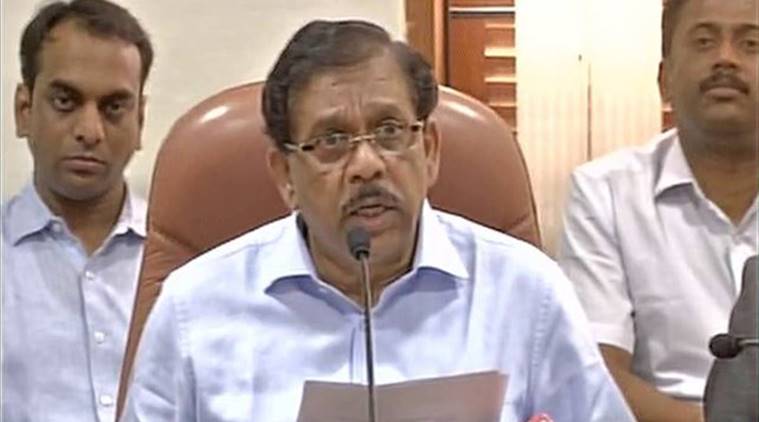 Karnataka Deputy CM G Parameshwara
Karnataka Deputy CM G Parameshwara
Anyone living in India has at some point been stuck in a massive traffic pile up, while a red beacon flashing convoy whizzes past. Last week, Karnataka Deputy CM G Parameshwara drew a lot of flak for zipping down gridlocked Bangalore roads while common folk had no choice but to stay put in their vehicles and make way for him. Cornered by reporters later who posed the very difficult question of why, exactly, should commuters be inconvenienced and traffic halted for him, Parameshwara pointed out that zero-traffic was a privilege accorded to him by law. After the scathing criticism he received for flaunting privilege, Parmeshwara tried to do some damage control but made things worse. “I regret the inconvenience caused. However, managing time is crucial because of many government programmes and meetings. Governor, Chief Minister and Home Minister have the privilege of zero traffic. I have instructed the police to ensure the least traffic,” tweeted Parmeshwara.
No doubt, making it to deputy chief minister of Karnataka is a staggering achievement, and no one seems more convinced of that than Mr Parmeshwara himself. Clearly, he believes the CM’s work is so important it takes precedence over all of Bangalore’s stranded citizens. So, bad luck, people, if the deputy CM needs to get anywhere and your plans go awry. It is interesting to note that Parameshwara’s predecessors in the Home Ministry, like Ramalinga Reddy, have declined to use the zero-traffic facility knowing fully well the pain this causes. Or perhaps, in the age of social media, politicians have had to wisen up, and at least, put up appearances of being considerate to the electorate. The city dweller, fed up with the rich and powerfuls’ brazen sense of entitlement, has one finger hovering dangerously close to the ‘post’ button. It’s kept a new generation of politicians on their toes, because arrogance, outed on Twitter, has real consequences.
Though culture is largely resistant to change, politicians in India are slowly coming around to the revolutionary idea that they’re not special. There will always be that rare case, like the Shiv Sena MP who hit an Air India employee for not giving him a business class seat, on an all economy flight. Rajendra Gaikwad was lampooned on national TV, his party didn’t support him, and he has hardly been heard of since. The terrible publicity Gaikwad garnered serves as a cautionary tale for anyone blinded by their own power. Media scrutiny is relentless and it’s evident in small ways that the impunity wealth and power brought to a chosen few, is slowly eroding. The Prime Minister has gone on record to say that every citizen is a VIP and these old symbols of entitlement are out of touch with the spirit of modern India. Eventually, one may reasonably hope, who you are won’t matter.
There are few situations more boring than a traffic jam, and probably none as ubiquitous to all our lives-irrespective of class, caste, wealth and stature. The standstill, from where you can either scream in frustration, or quietly observe a city inching towards disaster is a daily reminder of the meaninglessness of urban living. The average Indian may have come to terms with his oppression but psychologically, he can no longer overlook the unfathomable reasons why Parmeshwara deserves a free pass. The gridlock, if nothing else, is an essential feature of the human experience, a humbling leveller, between the powerful and the powerless.